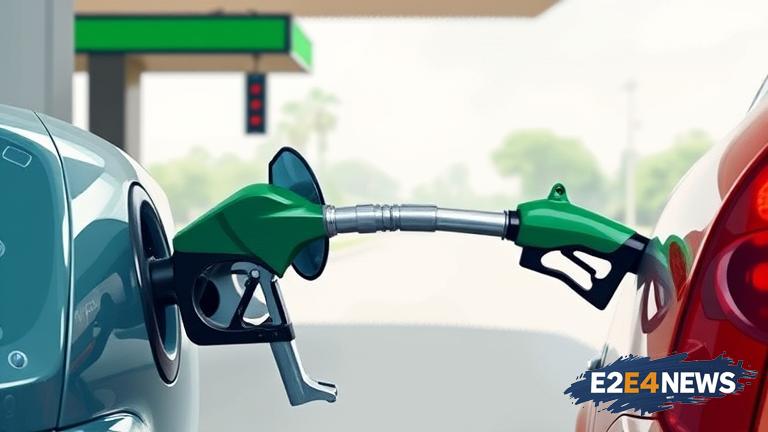The Indian government has recently announced its plans to introduce E20 petrol, a blend of 20% ethanol and 80% petrol, across the country. This initiative aims to reduce the country’s dependence on fossil fuels and decrease greenhouse gas emissions. However, the move has sparked concerns among vehicle manufacturers and owners, who are worried about the potential damage to engines and fuel systems. The government has clarified that E20 petrol is a viable alternative to traditional petrol, citing studies that show it can reduce emissions by up to 20%. The use of ethanol in petrol can also help to reduce the country’s reliance on imported fossil fuels, which can have a positive impact on the economy. Additionally, the production of ethanol from biomass can create new job opportunities and stimulate rural development. However, some experts have raised concerns about the compatibility of E20 petrol with existing vehicle engines, which may not be designed to handle the higher ethanol content. The government has assured that it will work with vehicle manufacturers to ensure a smooth transition to E20 petrol and provide support for the development of compatible engines. The introduction of E20 petrol is also expected to have a positive impact on the environment, as it can reduce emissions of harmful pollutants such as particulate matter, carbon monoxide, and hydrocarbons. Furthermore, the use of ethanol in petrol can help to reduce the country’s carbon footprint and contribute to its commitment to reduce greenhouse gas emissions under the Paris Agreement. The Indian government has set a target to achieve 20% ethanol blending in petrol by 2025, and the introduction of E20 petrol is a significant step towards achieving this goal. The government has also announced plans to increase the production of ethanol from biomass, which will help to reduce the country’s dependence on imported ethanol. The production of ethanol from biomass can also help to promote sustainable agriculture and reduce waste. However, the introduction of E20 petrol may also have some challenges, such as the need for significant investments in infrastructure and the potential impact on food security. The government will need to ensure that the production of ethanol from biomass does not compete with food crops and that the benefits of E20 petrol are shared equitably among all stakeholders. Overall, the introduction of E20 petrol in India is a significant step towards reducing the country’s dependence on fossil fuels and promoting sustainable development. With the government’s support and the cooperation of vehicle manufacturers, the transition to E20 petrol is expected to be smooth and successful. The use of ethanol in petrol can have numerous benefits, including reducing emissions, promoting sustainable agriculture, and stimulating rural development. As the country moves towards a more sustainable future, the introduction of E20 petrol is an important step in the right direction. The government’s commitment to reducing greenhouse gas emissions and promoting sustainable development is evident in its support for the introduction of E20 petrol. The benefits of E20 petrol are numerous, and it is expected to have a positive impact on the environment, the economy, and society as a whole. The introduction of E20 petrol is a significant step towards achieving the country’s sustainable development goals and reducing its dependence on fossil fuels. With the government’s support and the cooperation of all stakeholders, the transition to E20 petrol is expected to be successful and have a lasting impact on the country’s development.
